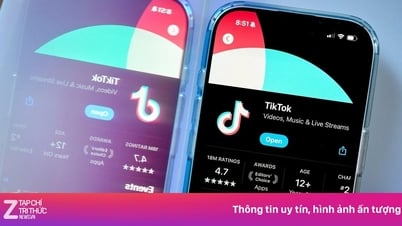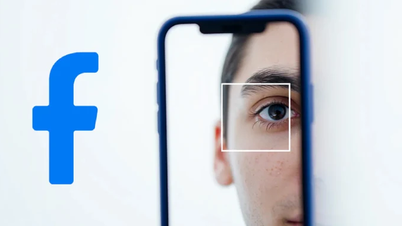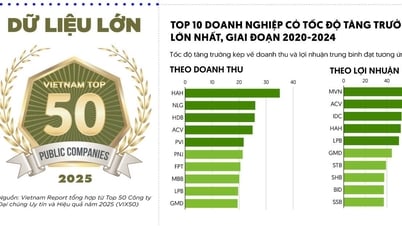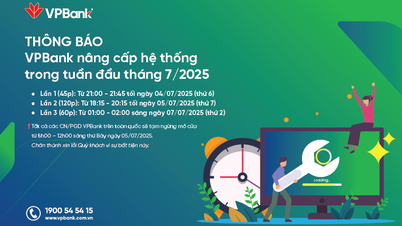
The website "knows" how to automatically adjust its interface to suit the device you are using - Illustration: AFP
Sitting in front of your computer screen, or holding your phone to access a website, have you ever wondered why the website knows what device you are using to automatically adjust the interface: zoom in, zoom out, display larger buttons when you use a touch phone, or suggest "open with iOS app" if you use an iPhone.
It's not "smart randomness," but a real and widely deployed technique called device detection.
Why does the website get device information?
According to Tuoi Tre Online 's research, when you visit a website, the browser will automatically send a string of technical information, called User-Agent, to the web server. This string tells you what device you are using, what operating system, what browser version... From there, the website analyzes and makes appropriate display decisions.
For example, if the User-Agent contains the keywords "iPhone" or "Android", the site will understand that you are visiting from a mobile device and automatically switch to the mobile interface.
In addition to User-Agent, JavaScript code can also collect information such as screen resolution, display ratio, touch capabilities to help identify devices more accurately.
Some advanced analytics tools also combine data from browsers, IPs, and cookies to profile users.
Purpose of website collecting device information
Device recognition has become an integral part of modern website design. This technology helps websites automatically adjust their interface to best suit the type of device the user is using.
Desktop, mobile and tablet interfaces all have different requirements in terms of size, layout and user interaction. By accurately identifying the device, the website can optimize the display experience without user intervention.
Performance is also an important factor: for low-end devices, loading a lighter version will help the page run smoother and reduce waiting times.
Not only stopping at utilities, device data is also utilized by businesses to analyze user behavior.
From device type to operating system to screen resolution, analytics systems can infer users' habits, interests, and even potential spending levels, thereby personalizing content and targeting ads more precisely.
Personalization or user control?
While this technique is considered the “standard” in web development, it also raises big questions about security and privacy.
Knowing whether a website is using an iPhone or a computer may not be immediately alarming, but combined with cookies, search history, location, and logins, it can collect data about you, from your lifestyle habits to your spending habits.
Therefore, control of personal information should not be solely on the website side. Users need to have the right to know and the right to choose what they are sharing and have the option to limit or refuse if not necessary.
This can start with simple habits like turning off location when not needed, periodically deleting cookies and browser history, proactively choosing "refuse" when asked for permission to collect non-essential data, or using browsers with privacy modes and tracking blocking tools...
Source: https://tuoitre.vn/website-biet-tat-thong-tin-thiet-bi-ban-dung-co-dang-lo-20250626233239917.htm

































































![[Photo] General Secretary attends the announcement ceremony of Resolutions on merging administrative units in Ho Chi Minh City](https://vphoto.vietnam.vn/thumb/402x226/vietnam/resource/IMAGE/2025/6/30/ab1bd03cc8bb4f60b2665f4915f258c5)


































Comment (0)